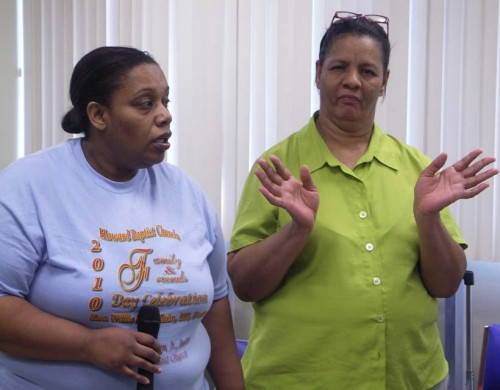
HTHA denies woman’s discrimination charge
March 7, 2011Thurs., March 10
March 10, 2011Members of America’s Wetland Foundation had their suspicions confirmed Friday when the results of a study conducted by DELTAS2010 indicated that they were correct in their assessment that if restoration of the Gulf of Mexico coast is to effectively take place, it will be up to local citizens and business leaders to get the work done.
A lack of will by the federal government, unclear lines of authority, political tradeoffs, unclear timelines and unrealistic expectations were among the findings that foundation members contend Louisiana and other Gulf states have had to deal with while waiting for anything to be accomplished when it comes to restoring coastal wetlands.
“Self empowerment is the key as vulnerable Gulf coastal communities assess risks and plan for the future,” AWF Chairman R. King Milling said in a printed statement. “The unfortunate fact is that some places in this delta region cannot be sustained indefinitely.”
Researchers that conducted the study said that a lack of a comprehensive policy on the part of the governmental, combined with no coordinated solutions nor a commitment to act in an urgent manner are among the obstacles coastal residents face as their lands wash away.
Recommendations from the DELTAS2010 study include reconnecting the Mississippi River with its natural delta and re-introducing fresh water sediment to the wetlands.
Additional suggestions that emerged from the study include the establishment of a dedicated source of funding, localize management of projects, offer community assistance by reforming restoration permitting, remove bureaucratic legal roadblocks, and create a leadership authority that is localized in nature.
Lafourche Parish President Charlotte Randolph, who also serves as chairwoman for Parishes Against Coastal Erosion, said that the DELTAS2010 study recognized that areas such as Lafourche and Terrebonne Parishes are a ground zero in a battle to save Louisiana’s coast.
“We welcome the gift of data, information and planning models as we continue the fight,” Randolph said. “We plan to stay connected to our land. For us to be resilient, it’s going to take the cooperation of government at all levels.”
Louisiana Lt. Gov. Jay Dardenne, who is honorary chairman for the AWF Resilient Communities project, said that the coast in Louisiana is starving.
“The [Louisiana delta wetlands are] different from the [Florida] Everglades,” Dardenne said. “But the two share impacts from conflicting federal policies that hinder progress.”
The AWF has spearheaded efforts to assist coastal residents in understanding what they can do locally to restore the wetlands and plan on conducting forms for action during the next 18 months. The motive behind their efforts match shortcomings noted by the DELTAS2010 study. According to AWF spokesman John Hill this is a starting place from which they hope results will rebuild the wetlands.






